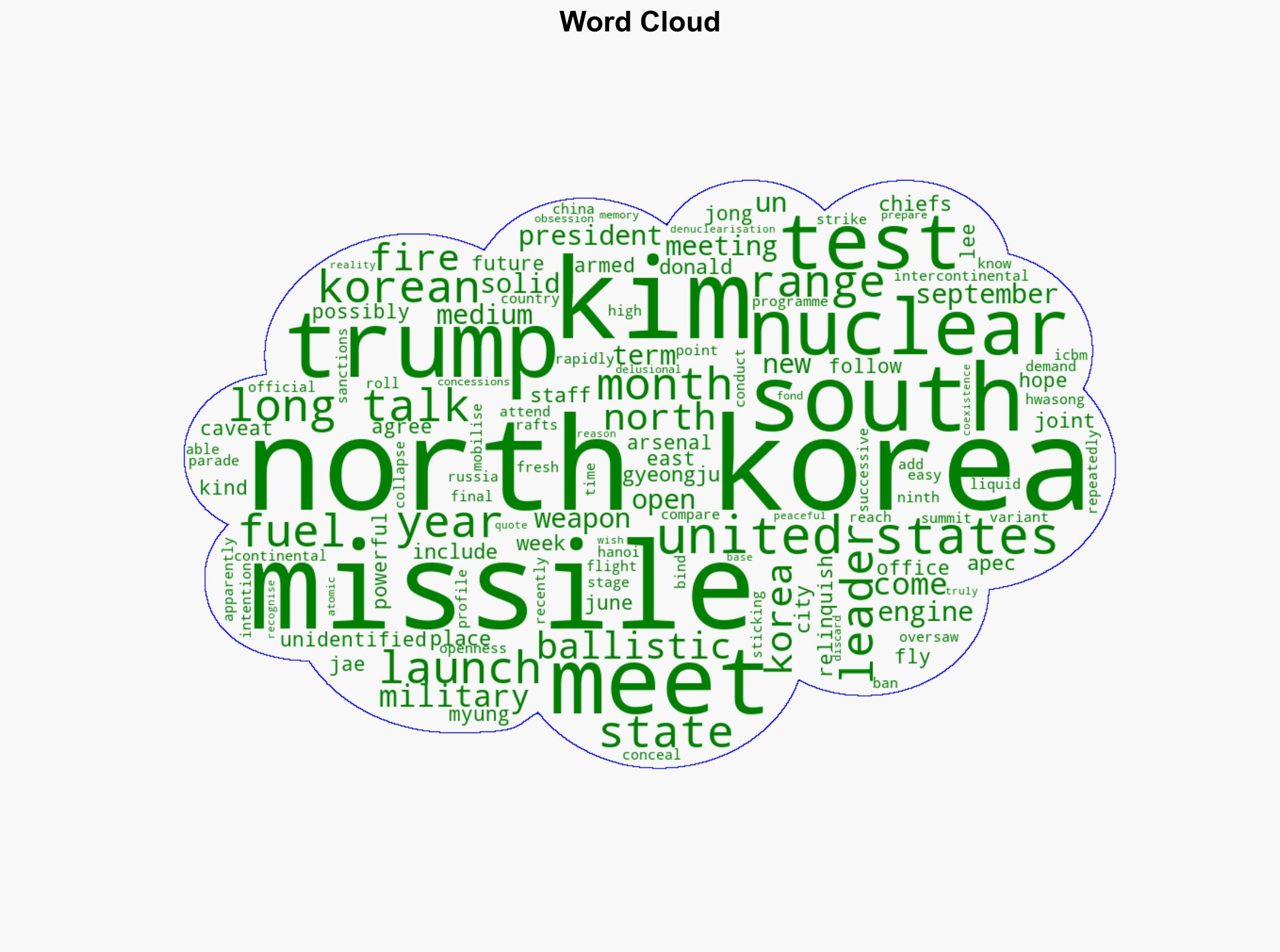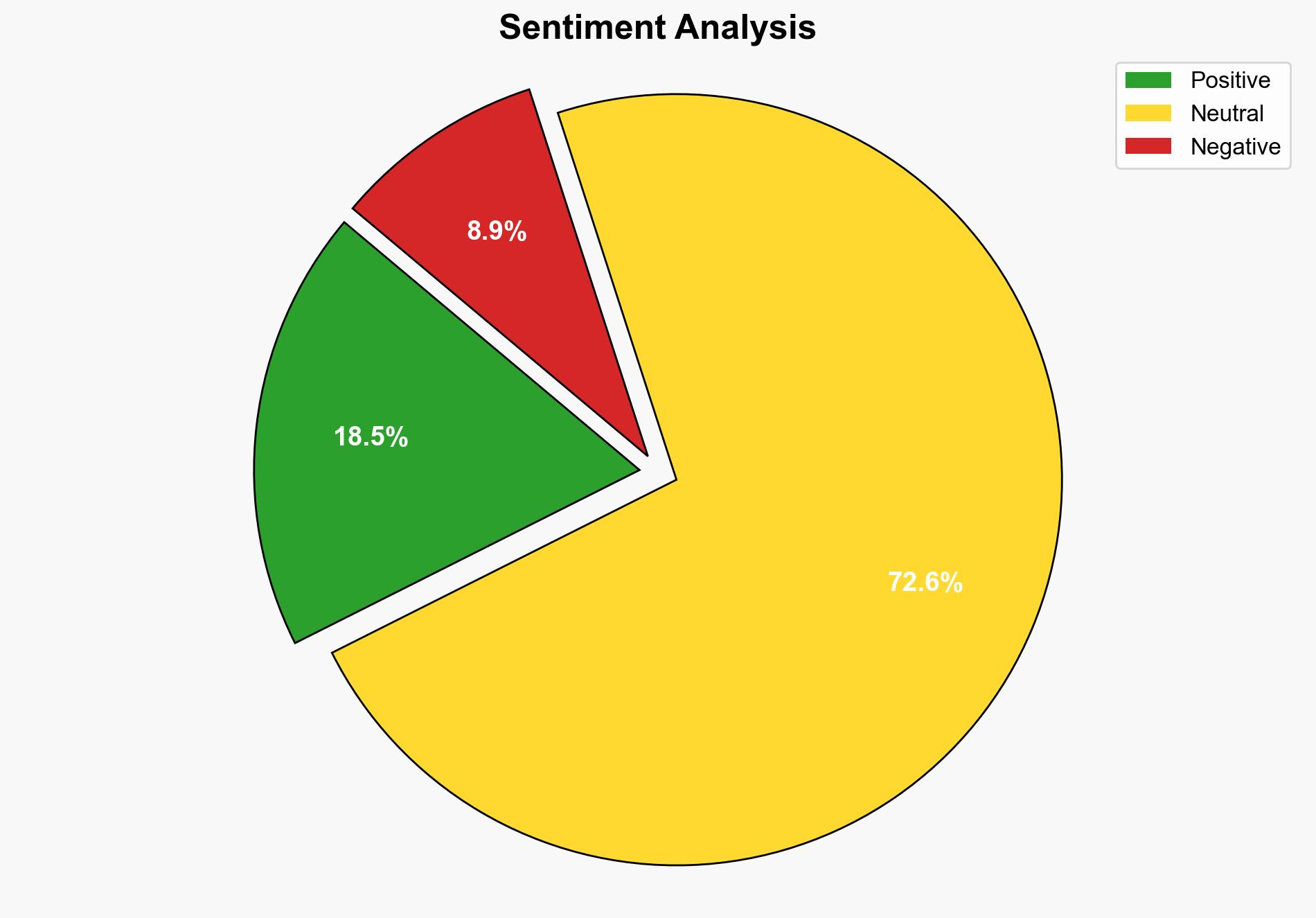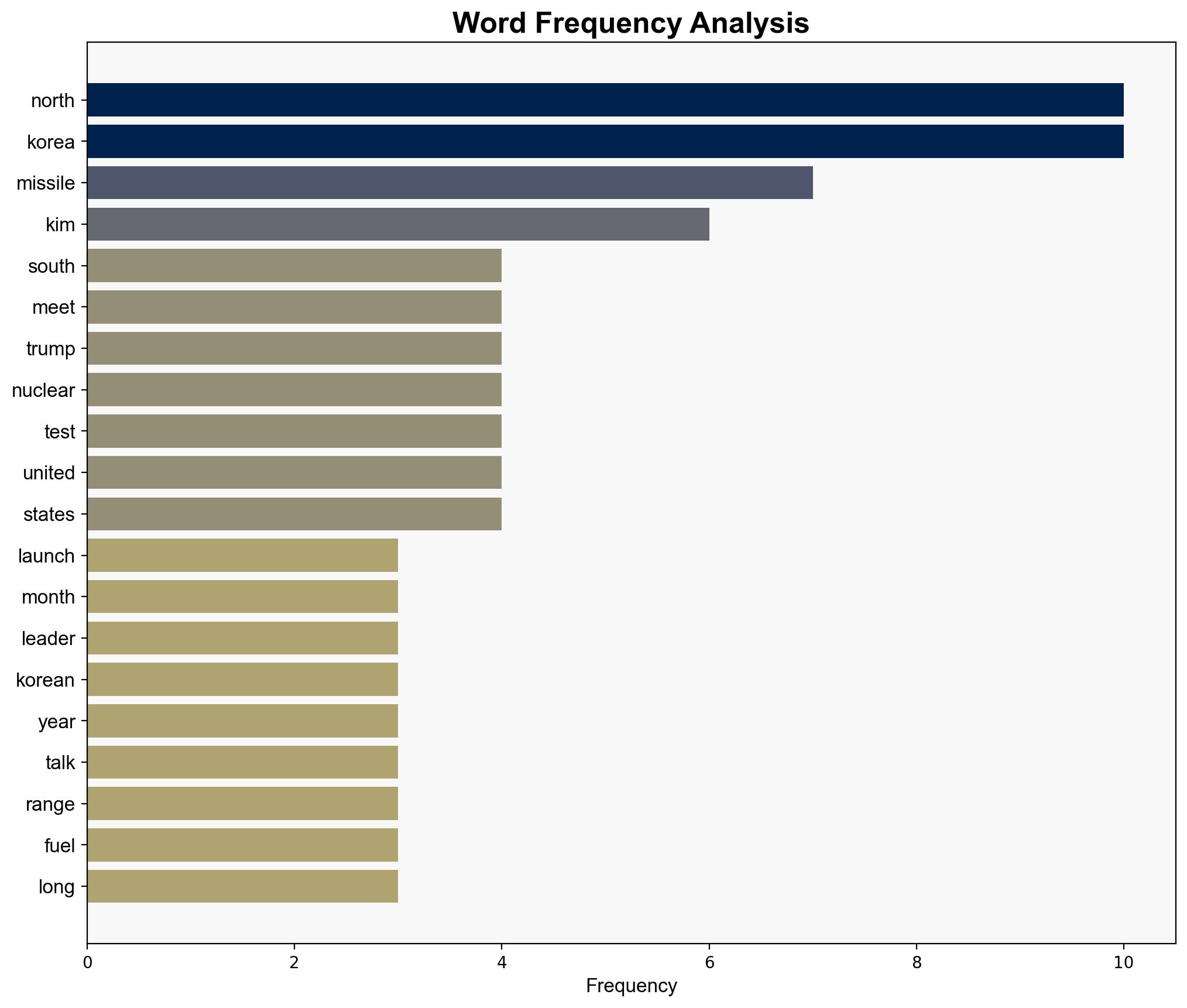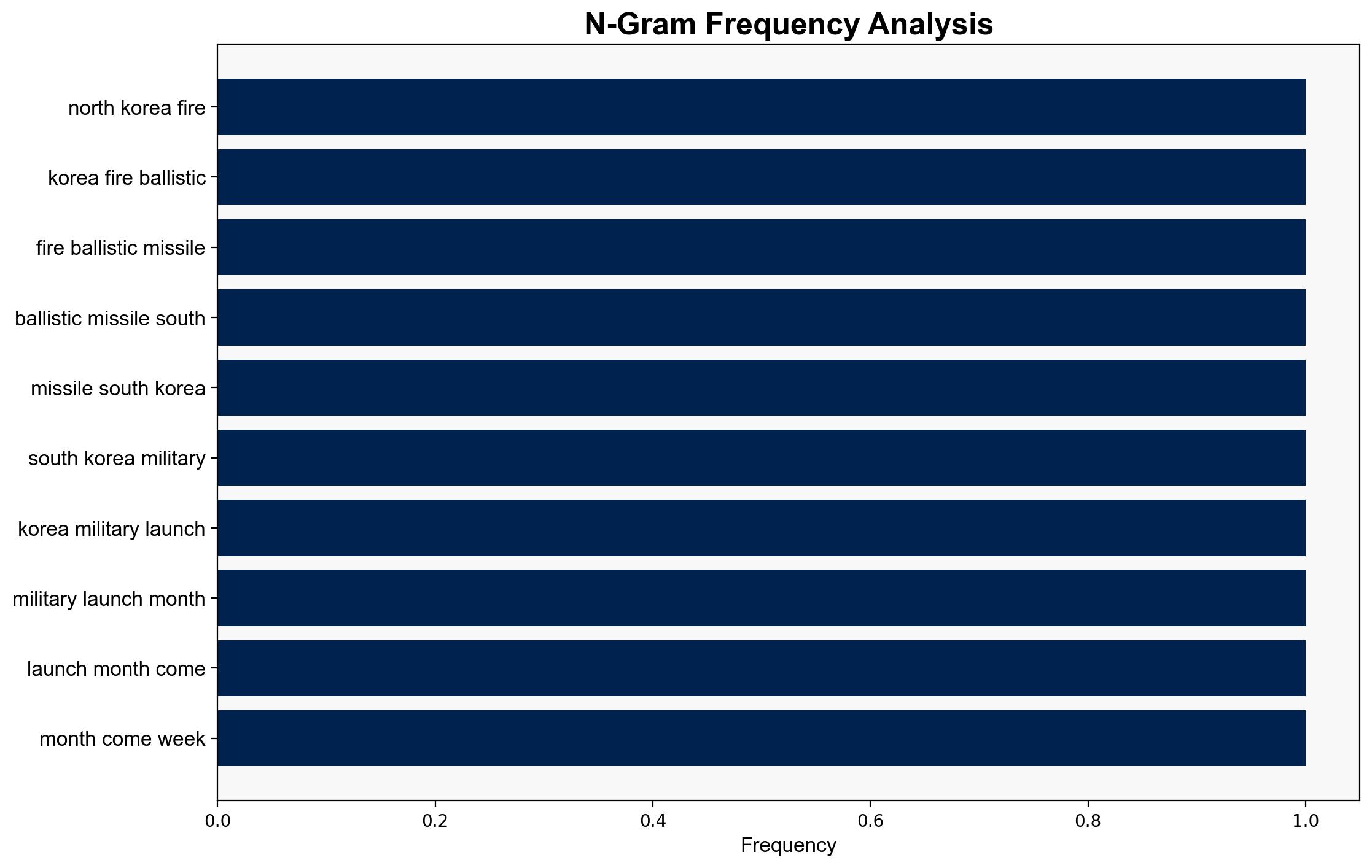North Korea fires ballistic missile – S Korea military – RTE
Published on: 2025-10-22
Intelligence Report: North Korea fires ballistic missile – S Korea military – RTE
1. BLUF (Bottom Line Up Front)
The most supported hypothesis is that North Korea’s missile launch is a strategic maneuver to strengthen its negotiating position ahead of potential talks with the United States. Confidence level is moderate due to the complexity of North Korea’s strategic calculus and historical unpredictability. Recommended action includes diplomatic engagement with regional allies and preparation for potential escalation.
2. Competing Hypotheses
Hypothesis 1: North Korea’s missile launch is a demonstration of military capability aimed at reinforcing its bargaining power in future negotiations with the United States and other global powers. This aligns with past behavior where missile tests preceded diplomatic engagements.
Hypothesis 2: The missile launch is primarily a domestic political tool to consolidate internal support and demonstrate strength amidst economic challenges and international sanctions. This hypothesis considers the internal dynamics and the need to project power domestically.
Using the Analysis of Competing Hypotheses (ACH) 2.0, Hypothesis 1 is better supported by the pattern of missile tests preceding diplomatic overtures and the timing relative to upcoming international meetings. Hypothesis 2 cannot be dismissed but lacks external corroborative events.
3. Key Assumptions and Red Flags
Assumptions include the belief that North Korea seeks to engage in negotiations and that missile tests are primarily for external signaling. A red flag is the potential underestimation of internal political dynamics driving the missile launch. The lack of detailed information on the missile type and trajectory introduces uncertainty.
4. Implications and Strategic Risks
The missile launch could escalate regional tensions, prompting military readiness among neighboring countries and the United States. It may also trigger economic sanctions or cyber retaliations. The geopolitical landscape could shift if North Korea successfully leverages this for diplomatic engagement, potentially altering alliances.
5. Recommendations and Outlook
- Engage in multilateral diplomatic efforts with South Korea, Japan, and China to present a unified front.
- Enhance intelligence sharing and missile defense readiness in the region.
- Scenario-based projections:
- Best Case: North Korea agrees to a moratorium on missile tests in exchange for economic incentives.
- Worst Case: Further missile tests lead to military skirmishes or heightened sanctions.
- Most Likely: Continued missile tests with intermittent diplomatic engagement.
6. Key Individuals and Entities
Kim Jong Un, Donald Trump, Lee Jae Myung
7. Thematic Tags
national security threats, regional focus, diplomatic strategy, missile defense




